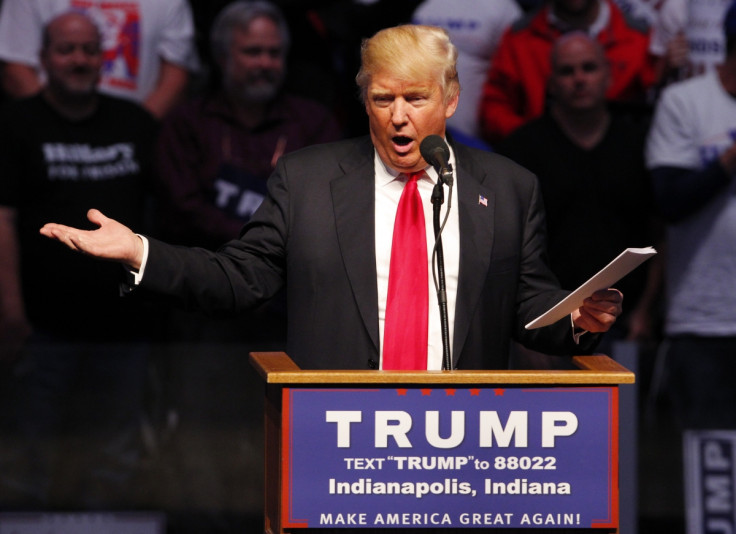Trump's top aide: US to accept China's growing global role if it does not challenge status quo
James Woolsey says ideological differences between two countries should be better managed.
After publicly slamming China for manipulating the yuan and vowing to impose tariffs on Chinese imports during his campaign trail, President-elect Donald Trump seems to be taking a more conciliatory stance, possibly even agreeing to turn a blind eye to the social and political systems in Beijing.
While promising that Washington, under Trump is committed to the spread of freedom, the new administration will seek to "improve our understanding of the complexities of the Chinese social and political system."
James Woolsey Jnr, a top aide to Trump, in an opinion piece published on 11 November in the South China Morning Post acknowledged that the ideological differences between the two countries should be better managed.
"America's commitment to the spread of freedom is unwavering. Yet, as we improve our understanding of the complexities of the Chinese social and political systems, it becomes increasingly apparent that challenging the current system is a risky endeavour," he said.
"We may not like it but we don't necessarily have to do something about it. I can therefore see the emergence of a grand bargain in which the US accepts China's political and social structure and commits not to disrupt it in any way in exchange for China's commitment not to challenge the status quo in Asia."
Woosley, who is the senior adviser to Trump on national, security, defence and intelligence, added: "It may not be a spoken agreement but a tacit understanding that guides the relations in the years to come."
Rising global presence of China will benefit the world

The aide also welcomed China's push to play a bigger role in peacekeeping operations but said it needs "to claim an expanded role" in areas like counter-terrorism, humanitarian efforts, disaster relief and anti-piracy. Welcoming Beijing's hopes to lead the UN's Department of Peacekeeping Operations, he said: "This will give China a much bigger say on how to best utilise the UN's limited resources in the service of peacekeeping.
"But it also sends an important message that China is much more willing to live up to its size on matters related to peace than in fighting wars. Peacekeeping is easier than peacemaking," he noted.
On China's growing economic presence, the senior adviser said that the Obama administraiton's opposition to the formation of the China-backed Asian Infrastructure Investment Bank was a "strategic mistake".
The AIIB was viewed as a rival to the World Bank, and seen as a means for China to flex its economic strength and push for the rebalancing of the international financial clout held by the US. So far the US and Japan are the only G7 countries that have not signed up to be members.
"I hope that the next administration's response to the Belt and Road initiative will be much warmer." he added.
American public suffering from 'world policeman fatigue'
Woosley also noted that some Americans were showing what he described as "world policeman fatigue", referring to his country's role as the leading military force in the world. "We are the only country that can project power in volumes sufficient to deter enemies, decide wars and pacify entire regions."
Despite this, he said the US needs to reinstate its primacy in the conventional and digital battle space to reinforce American allies' trust in its commitment to security. "We need to reverse the harmful defence budget cuts signed into law by the Obama administration. We must also redraw our red lines and redefine our vital interests."
He also gave a history lesson reminding the world: "Our so-called interventionism in the wars against Imperial Japan, Nazi Germany or Baathist Iraq is the reason why countries like Kuwait, Australia, France, Poland and even China are sovereign countries today."
However, he conceded that the US, under Trump, will now be "more scrupulous in our decision making on where and how we get involved," but warned that Washington does not intend to become isolationist.
"The US sees itself as the holder of the balance of power in Asia and is likely to remain determined to protect its allies against Chinese overreach," he said.
© Copyright IBTimes 2025. All rights reserved.






















